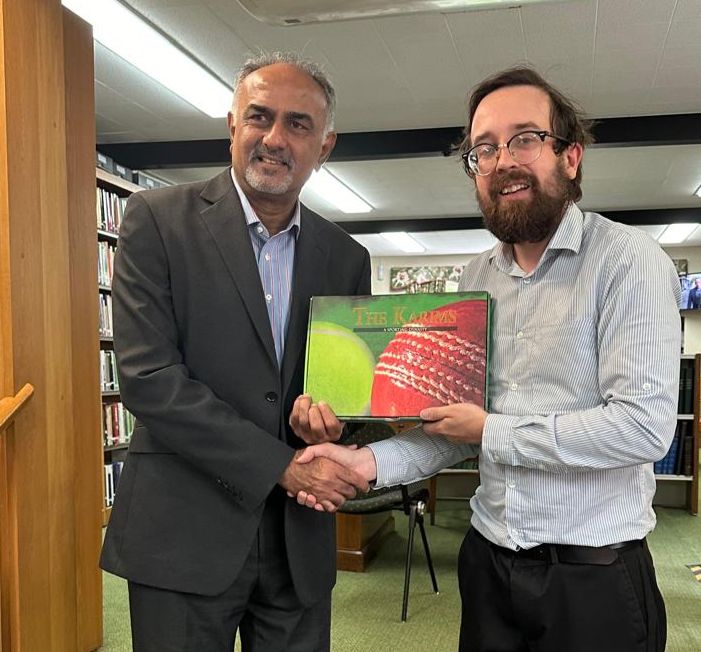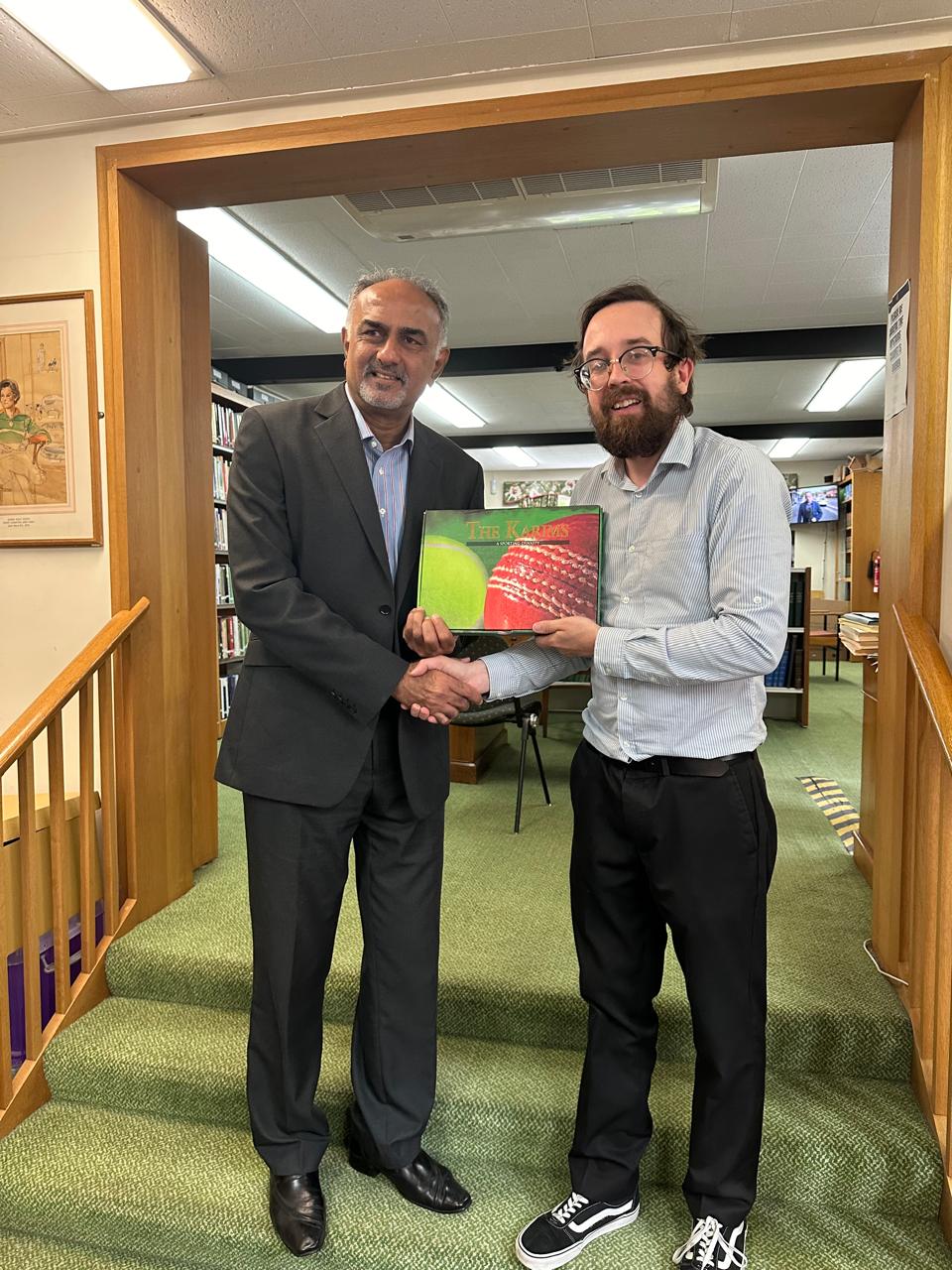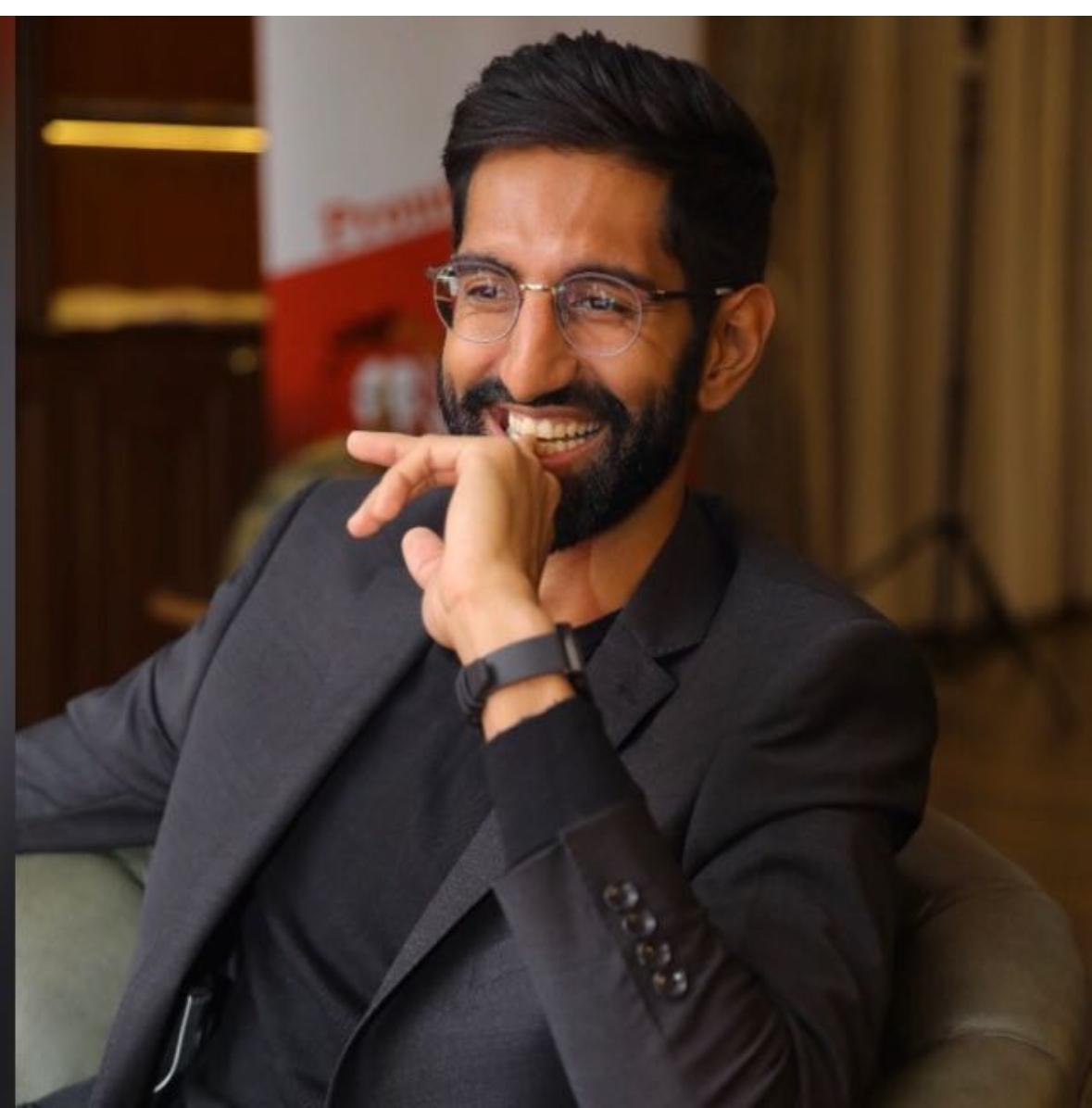Story
Feel sad for son and other young cricketers losing time: Aasif Karim
16 Aug, 2024
Aasif Karim left the cricketing world in a daze with his brilliant spell against Australia in the 2003 World Cup; twenty-one years later he recalls that spell, talks about son's progress and an upcoming biopic on him by Bollywood
 Bareera K.H.
Bareera K.H.
A young aspiring cricketer beginning to write
 Khurram Habib
Khurram Habib

Another Bollywood biopic is likely to be released by 2026. It won’t feature any Indian cricketer, but someone from Kenya. The name Aasif Karim rings a bell. He is the left-arm spinner from the east African nation who tied down and rattled the GOAT Australian ODI team in the 2003 World Cup.
That spell of bowling put out by the International Cricket Council (ICC) in a Facebook video, ‘Aasif Karim's outstanding 3/7 v Australia | CWC 2003’ has garnered 34 million views. To give an idea how big that number is, MS Dhoni’s six in the 2011 World Cup final on ICC’s Facebook has earned less than a million views, just over 8,00,000.
Such was the impact of Karim’s spell of bowling that when the then 39-year-old was introduced into bowling, Australia were cruising towards the 175-run target at 109/2 in 15 overs. Skipper Ricky Ponting was at the crease. But three overs later, they were struggling at 117/5. Karim had picked Ponting, Darren Lehmann and Brad Hogg and eventually returned with figures of 8.2-6-7-3.
“I came into bowl in the 16th over and as I bowled the first and second delivery, I felt that there was some good turn on the pitch and my mindset immediately changed from just going through the motion because of the status of the match to wanting to do well,” said Karim to www.theflyslip.online.
“That [performance] got me the Man of The Match and then, a very unprecedented thing happened during the match. The umpire Steve Bucknor shook my hand when the match was going on. He didn’t do it once, he did it two or three times during the spell. I was also taken aback. In all the years that I have played cricket, never experienced an umpire shake hands. Umpires generally say ‘well bowled’. When the cameras were rolling, he shook my hand almost at the end of every over -- that was something very unique and special.”
Karim, now 60, has been staying in Nairobi for the last 30 years.
“When I came back from America I worked for about six months only, just to get a feel of how things were in Kenya. I had studied insurance. I wanted to do my business and after six months, started my own company. From insurance, I diverted into investments and property and a few other things. Then about seven years ago, I became a fellow arbitrator at the Chartered Institute of Arbitrators in England, so I am a private judge handling disputes from commercial to private to marital to family in Kenya. I did continuous education, took me 7-8 years to become a fellow,” said Karim, who runs Kenya’s only sports magazine, Sports Monthly.
“This is our 25th year in publication. This is my way of giving back.” He also organises the only sports film festival of Africa, the Kenya International Sports Film Festival. This October will witness its seventh edition.
Karim’s grandfather had migrated to Kenya from the Kutch region in India in 1926.
“My grandfather came in 1926, was here for 6-7 years, came back to India and in 1937, he permanently moved to Kenya. He was working in a law firm. Then he became a ration inspector, tasked to check pricing. Then my father and his brother started a stationery and sports goods business.”
His father, Yusuf, was a renowned a sportsman in his days. Karim himself played tennis, participating in Junior French Open in 1981.
“I played a lot of junior tournaments including the Junior French Open in 1981. Two months after that, I went to the US on a tennis scholarship. I studied in USA, played the highest level of college tennis for four and a half years. Played as No. 1 for my University, Howard University in Washington DC. When I came back, I continued with both tennis and cricket.”
It was tough to look up to role models but constant tours by south Asians, especially Indians, provided some sort of guidance.
“When I started in school, I was just a casual left-arm spinner. From then, it just went on, there was no specific following. There was no one that you could follow, we were in our little domain of Kenyan cricket. There was nothing that could be looked up to. Later on I was told that my action was more like [former India player and coach] Ravi Shastri, tall, lanky, coming across for left-arm spin. A lookalike,” said Karim.
“There was nothing that triggered it. But I developed self-belief and confidence and changed according to demand of cricket. For example, in the earlier days, the 80s, a left-arm spinner would toss the ball more but as cricket became more aggressive, you could not do that. You had to adjust quickly, so the left-arm would be slightly faster. In olden times, there was loop.”
The turning point was the Associate Trophy where the young nations played to enter the World Cup.
“The first one I played was in 1986. That was the time I had returned from USA and was immediately selected in the national team. After the 1986 Associate Trophy, I played in the 1990, 1994 and 1997 editions.”
Kenya, by then, had made waves in international cricket, playing the 1996 World Cup, putting up great performances by shocking West Indies there, and then also playing the 1999 and the 2003 editions thanks to ICC bowing down to pressure from Bangladesh Cricket Board and Kenyan cricket body to allow them ODI status. The 2003 World Cup was to be a watershed moment in Kenyan cricket. They made the semi-finals, losing to India in the last four stage.

Aasif Karim (left) presenting the coffee table book, 'The Karims: A Sporting Dynasty' to Alan Rees, the archive and library manager at the Marylebone Cricket Club at Lord's, London. The book is also digitally available on Amazon and Google Play.
But the downfall began after that. It hurt many careers, including that of Irfan, Karim’s son.
If you look at the list of wicketkeepers with most dismissals in T20Is, you’d come across Irfan’s name. He is the third in the list with 83, behind Quinton de Kock (102), and MS Dhoni (91).
“The tragedy as a father or as a cricket lover and having played at the highest level, I feel sad for him and other young cricketers who are losing valuable time and the sell-by date will be up after a couple of years. He is trying to see where he can get an opportunity because now across the globe, there are many T20 leagues taking place. He has played in various countries. We are hoping that he gets some opportunities to showcase his skill and talent in the years left in him,” added Karim.
“He played for Kenya when he was only 17 years old in 2008. He then went to Loughborough University in UK and did extremely well there in university cricket. He represented England in the University World Cup in 2015 held in Dehradun, India. England lost to South Africa in the final. However, Irfan was declared the best batsman of the tournament.”

Irfan Karim, son of Aasif Karim, is third in the list of wicketkeepers with most dismissals in T20 Internationals. He is behind Quinton de Kock and MS Dhoni.
Irfan now plays league cricket in England and is a leading player for Kenya. He has, over the years, played for second XI teams in County cricket. Karim says that despite getting runs consistently, he never got an opportunity to play for the first XI teams in County cricket.
The former captain laments the decline of Kenyan cricket.
“It is very unfortunate that Kenyan cricket is down nowadays. If Kenyan cricket now was of the level back when I used to play, I am extremely confident that 3-4 Kenyan players would have easily played the Indian Premier League (IPL). If our group was there at IPL time, I think 3-4 of our cricketers would have played IPL. We were one generation early.”
The sporting contribution of the Karims, especially Aasif, is well documented in a book, The Karims: A Sporting Dynasty. There is also a documentary by the same name, which is available on Youtube.
**If you like my work, consider buying me a coffee at: www.ko-fi.com/flyslipcricket
Kenya Cricket, Aasif Karim, Irfan Karim, Ricky Ponting, Cricket World Cup